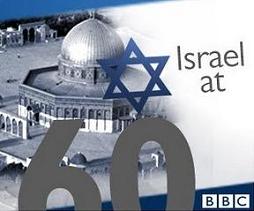Is the BBC The Voice of Israel?
PulseMedia

It has been a year since Israel’s savage assault on Gaza that killed more than 1400 civilians. For the duration of the attack the BBC did not have a single man or a woman inside Gaza to cover it. This would be understandable if there weren’t any means available to get a journalist into Gaza. But this was not the case. The BBC, unlike channels such as Al Jazeera International, appeared content to comply with Israeli demands to keep clear. Worse, its journalists parroted Israeli claims about the rationales and the consequences of the assault. Just as the British government provide tacit support for the assault, so the BBC assisted it by giving Israeli officials ample time to rationalize the atrocities. If this were not bad enough, the BBC then took the reprehensible step of refusing to run a Disasters and Emergencies Commission (DEC) appeal for the victims in Gaza.
When months latter it finally came to acknowledge that its coverage had indeed been biased, it claimed it was…too pro-Palestinian! (This prompted the great Robert Fisk to proclaim The BBC Trust ‘nothing more than a mouthpiece for the Israel Lobby’).
A week back we published a letter that friend of PULSE Anne Key had sent to the BBC complaining about the excessive deference with which it treats Israeli spokesmen. She has since received a reply in which, among the usual platitudes, the BBC editor writes: ‘We have given air-time to representatives from across the political spectrum and our correspondents are equally vigorous in their questioning of interviewees regardless of whether they are Israeli or Palestinian’. But the question was not whether the BBC gives airtime; it is rather the proportion of the airtime each side receives.
As the Glasgow University Media Group has shown in ironclad figures, the Israeli side receives a disproportionately higher amount of time. If the BBC questions these assertions, then it should present alternative figures which prove otherwise. It can begin with an investigation into its coverage of the Gaza assault. The past 12 months have provided sufficient time for BBC to evaluate its performance in the light of available facts. It is time for it to come up with clear and candid answers to the following questions: (I thank Jeffrey, a friend of PULSE, for suggesting the questions)
● For sake of transparency, BBC can and should make precise figures available so independent observers can determine to what it informed and educate its audience about the situation in Gaza.
● If there were restrictions on entering and reporting from Gaza, how many civil liberty advocates from groups such as B’Tselem — The Israeli Information Center for Human Rights in the Occupied Territories — were consulted and interviewed as to how BBC can verify reports about civilian killings in Gaza?
● How many representatives from Red Cross, Doctors Without Borders and other emergency assistance networks were interviewd?
● How many medical personnel with experience of humanitarian relief and medical assistance in urban war settings i.e. Serbia, Bosnia were interviewed to help BBC audience get a comparative perspective of consequences of armed incursions into civilian areas.
● BBC claims that because of restrictions imposed they could only cover the incursion on Gaza from what many name as the hill of same since most coverage despatched from the same spot in Israel overlooking Gaza’s outskirts.
● How many times did BBC air reports from the Palestine-Egyptian border in Rafa from the Egyptian side which would have served to bring a new dimension to provide the story from more than one restrictive angle?
● How many transferred to Rafa for treatment in Egypt were interviewed?
* How many medical personnel both Egyptian and foreign were consulted?
● Why a comprehensive picture of the gravity of the situation at hospitals in Gaza is not being given? What is the daily pressure on the medical personnel? What kind of shortages are they facing?
● What prevents BBC from using commercially available satellite images for a then and now perspective to allow the viewers have an idea how the sea side strip has changed say from 25 December 2009 and today.
● How many times Israel’s spokespersons were and still are given airtime vis-à-vis human right activists and medical experts in urban casualties?
● BBC can easily give the number of appearances and duration form 26 December 2008 and 17 January 2009 for those appearing across its various channels in different bulletins/news programmes for people such Mark Regev; Avil Leibovic, Issac Herzog, Tzipi Livni and others.
● How many items were shown where serving and former Israeli servicemen demonstrated against air raids on gaza’s civilians? Did the BBC show the mother of an Israeli soldier who spoke against killing of innocent civilians?
An exercise similar to the above will help determine if the BBC is indeed fair, neutral, and objective in its coverage. I would encourage readers to send the BBC your complaints and demand answers to these question, or, better yet, a new enquiry.
__________________________________________________________________________________
Source: http://pulsemedia.org/2010/01/07/what-say-you-bbc/
























